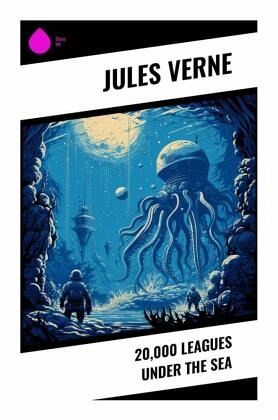
20,000 Leagues Under the Sea
Versandkostenfrei!
Versandfertig in 6-10 Tagen
15,20 €
inkl. MwSt.

PAYBACK Punkte
0 °P sammeln!
"20,000 Leagues Under the Sea" is a seminal work of science fiction that combines adventure, exploration, and the marvels of technological innovation. Written in 1870, Verne's narrative follows Professor Aronnax, Conseil, and Ned Land as they embark on an extraordinary underwater odyssey aboard Captain Nemo's submarine, the Nautilus. Verne's literary style is rich with vivid descriptions and meticulous attention to scientific accuracy, reflecting the burgeoning interest in oceanography and marine science during the 19th century. The novel not only captivates readers with its thrilling escapade...
"20,000 Leagues Under the Sea" is a seminal work of science fiction that combines adventure, exploration, and the marvels of technological innovation. Written in 1870, Verne's narrative follows Professor Aronnax, Conseil, and Ned Land as they embark on an extraordinary underwater odyssey aboard Captain Nemo's submarine, the Nautilus. Verne's literary style is rich with vivid descriptions and meticulous attention to scientific accuracy, reflecting the burgeoning interest in oceanography and marine science during the 19th century. The novel not only captivates readers with its thrilling escapades but also serves as a meditation on the existential risks of scientific discovery and human ambition in a rapidly industrializing world. Jules Verne, often dubbed the 'father of science fiction,' was born in 1828 in Nantes, France, where he was exposed to maritime culture and the wonders of exploration. His keen interest in both literature and science, along with the influence of contemporary scientific thinkers, shaped his visionary approach to storytelling. Verne's profound fascination with the ocean and technology culminated in this groundbreaking narrative, which reflects his desire to push the boundaries of human imagination and inquiry. "20,000 Leagues Under the Sea" is a must-read for enthusiasts of speculative fiction, adventure narratives, and those intrigued by the interplay between humanity and technology. This timeless tale invites readers to dive deep into the mysteries of the ocean and the human spirit, illuminating the wonders and dangers that lie within both realms.












